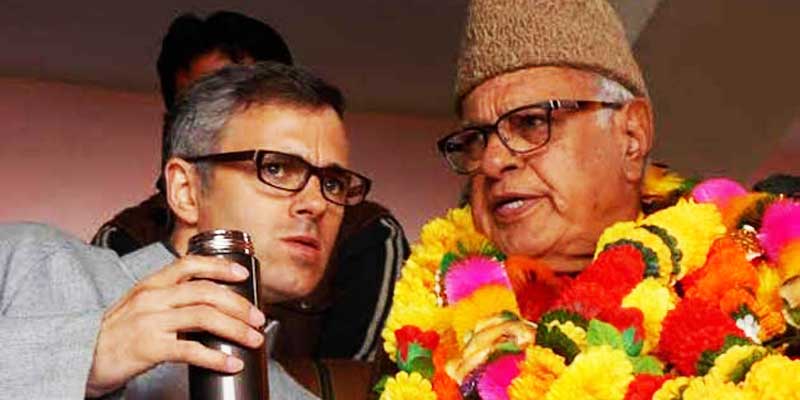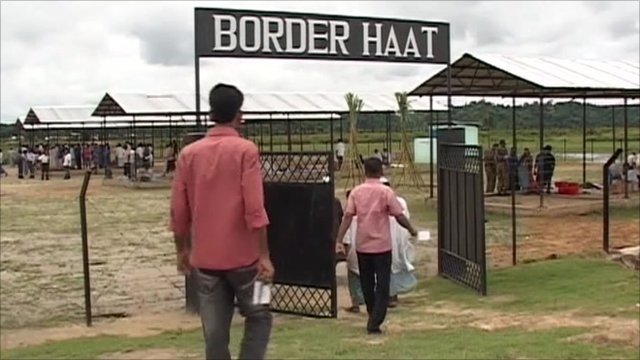The loss of political face might be disturbing Abdullah. But, as RSS says, Jammu and Kashmir is not his property. People are demanding debate. They want to be a part of India. Afterall, there is one and only one nation ad that is India.
Minister of State in the Prime Minister’s Office, Jitendra Singh, stated the obvious on Tuesday when he said that discussions on whether Article 370, which grants special status to Jammu and Kashmir, should be in place or revoked, should be held. It has been an agenda carried out in the BJP manifesto prior to the Lok Sabha elections. Reports in the The Hindu quoted Singh as saying that the “talks with stakeholders on the issue were on”.
Firstpost carried Singh’s comments: “We have called meetings in the Kashmir Valley and we have succeeded in convincing some of them (on repealing Article 370),” he said. Singh then went on to express Modi’s views on the issue, saying: “His (Modi’s) intention and that of the government is that we have a debate so that we can convince the unconvinced about the disadvantages of Article 370.” “If we do not have debate and discussion how would you be able to tell those who have been unable to understand what they have been deprived of on account of Article 370. We are working very professionally but at the same time, please keep in mind, that we are working very democratically. We do not want to impose ourselves on anyone and things will happen in natural course,” he said.
It swelled into a major controversy and attracted ire of Jammu and Kashmir chief minister Omar Abdullah, who said that Article 370 was the “ONLY Constitutional link” between the state and the rest of the country.
He tweeted:
So the new MOS PMO says process/discussions to revoke Art 370 have started. Wow, that was a quick beginning. Not sure who is talking 1/n
— Omar Abdullah (@abdullah_omar) May 27, 2014
Mark my words & save this tweet – long after Modi Govt is a distant memory either J&K won’t be part of India or Art 370 will still exist 2/n
— Omar Abdullah (@abdullah_omar) May 27, 2014
Art 370 is the ONLY constitutional link between J&K & rest of India. Talk of revocation of not just ill informed it’s irresponsible. 3/3
— Omar Abdullah (@abdullah_omar) May 27, 2014
Not only this, Abdullah went on saying that he was the stakeholder on the issue and nobody talked to him before issuing such an “irresponsible statement”. On various news channels, Abdullah appeared quite agitated while commenting on the statement made by Singh, who is an MP from his state and defeated former union minister Ghulam Nabi Azad in elections.
Singh was forced to come out and clarify on the statement. “I seek to clarify that the reports in the media about my statement on Article 370 are misquoted. I have never said anything quoting the honourable Prime Minister. The controversy is totally baseless,” he said, according to a PTI report.
This morning, the RSS slammed the Chief Minister, asking whether Kashmir was a parental estate of the Abdullahs. Spokesperson for the organisation Ram Madhav tweeted:
J&K won’t b part of India? Is Omar thinking its his parental estate? 370 or no 370 J&K has been n will always b an integral part of India.
— Ram Madhav (@rammadhavrss) May 28, 2014
Sharp reaction from other leaders of BJP on Abdullah’s statement have also come and Congress, ofcourse, is taking the J&K CM’s side.
But this is not the issue. The larger issue is whether the Article 370 should be in place or not, whether it has been fruitful to the state or not.
It is embed in the history that the father of our Constitution, Dr Bhimrao Ambedkar, never wanted Article 370 to be in place. When Pundit Jawaharlal Nehru had directed Sheikh Abdullah to consult Ambedkar (then Law Minister) to prepare the draft of a suitable article to be included in the Constitution, Ambedkar had refused to oblige.
His words on the occasion are worth their weight in gold: “You want India to defend Kashmir, feed its people, undertake its all-round development and give Kashmiris equal rights all over the country. But you do not want the rest of India and Indians (to have) equal rights in Kashmir. I am (the) Law Minister of India, I cannot betray my country.”
Given Ambedkar’s principled stand, Article 370 was drafted by Gopalaswami Iyengar, a State Minister.
When Maharaj of Kashmir, Hari Singh, had signed the Instrument of Accession accepting the Dominion of India, it was limited to a number of matters, including Defence, External Affairs, Communications and some other issues, with respect to which the Indian legislature could make laws for Jammu and Kashmir. Article 370 of the Indian Constitution is thus the reflection of this status of relations between India and Jammu and Kashmir. The powers of the Parliament to make laws in the state were limited to those matters in the “Union List” and the “Concurrent List”, the latter in consultation with the government of the state.
Historians say Article 370 was a “temporary” and “transitional” provision of the Indian Constitution, limited to the provisions of the Instrument of Accession, because the time was not ripe for complete integration of the state. But over the period of time, this autonomy was thinned. The President become the Governor, Prime Minister become the Chief Minister of the state.
During the election campaign, Prime Minister Narendra Modi had called for a debate on Article 370. Soon after Modi’s remark, a Panchjanya editorial had said “this temporary provision of the Constitution has become a shield for separatists and religious fundamentalists solely because it has been used to protect the vested interests of power and position at the expense of national interests”.
The Organiser had claimed that Article 370 is not good for “better-halves”. It also asserted how the Jammu and Ladakh regions were “victims of the biased system”.
Now the political reality, which has hammered Abdullah’s head, says that National Conference lost bitterly in the Lok Sabha elections. His father and former CM of J&K Farooq Abdullah lost by a margin of more than 30,000 votes to PDP candidate Tariq Hamid Karra.
The political arithmetic makes him invoke his patriotism and spread farce about the Article 370. He says that abrogation of Article 370 will secede the state from India the moment this article is repealed and that the Indian Parliament had no authority to amend or repeal it. But the reality is completely different.
Niti Central says: Article 370 is part of the Indian Constitution and the Parliament being the highest legislative body in the country has the power to amend it. Using Article 368, it can amend or repeal any of the provisions of Indian Constitution. Even the President of India can amend or abrogate Article 370. The only condition is that the Union Cabinet has to send a proposal to this effect to him. It is important to note that the President of India can keep Jammu & Kashmir under his direct rule for any number of years by invoking Article 370, as it gives absolute executive powers to the constitutional head. Take for example, the Governor/President rule in the State between January 19, 1990 and October 9, 1996. Jammu & Kashmir was under the President rule for almost seven years without amending the Indian Constitution even once because Article 356 is not applicable to this State.
The loss of political face might be disturbing Abdullah. But, as RSS says, Jammu and Kashmir is not his property. People are demanding debate. They want to be a part of India. Afterall, there is one and only one nation ad that is India.
So, Mr Abdullah must overcome his political fears of redundancy and face the obvious. It is time to unite.





